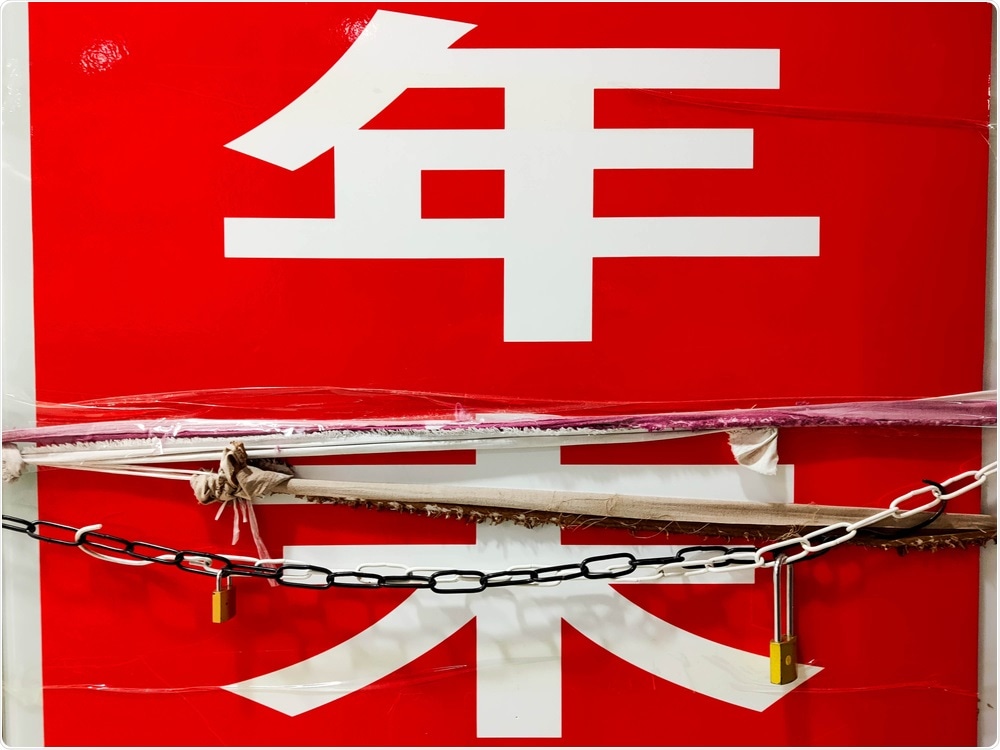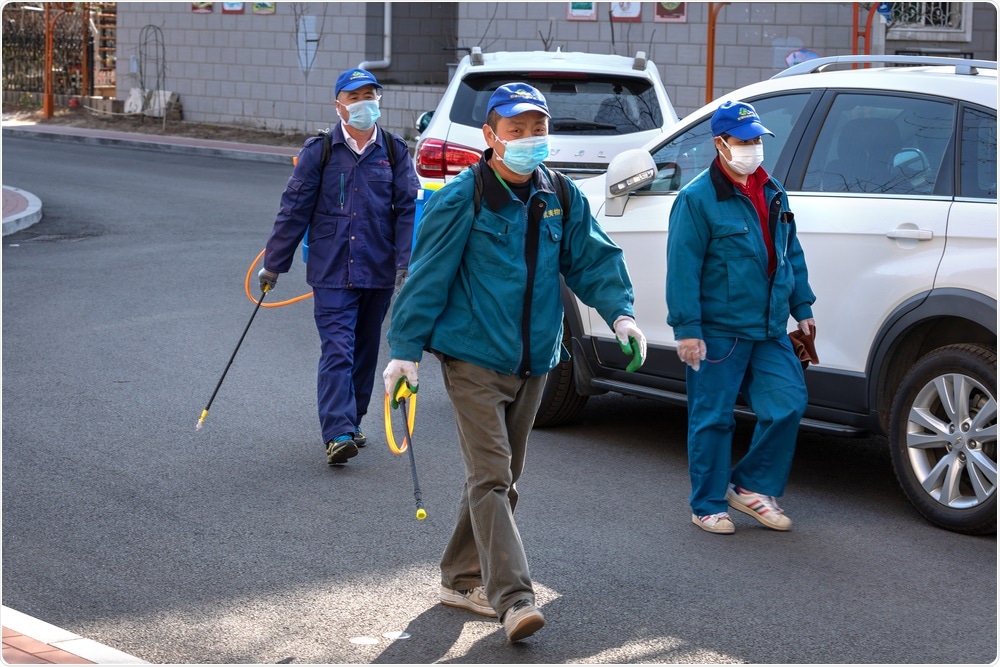The coronavirus disease (COVID-19) pandemic first emerged in a seafood market in Wuhan City, Hubei Province, China, in December 2019. Since then, it has spread to 188 countries and territories and infected more than 10 million people. The viral infection has so far killed more than 500,000 people worldwide.

Image Credit: zhangjin_net / Shutterstock
Many countries grapple with skyrocketing severe acute respiratory syndrome coronavirus 2 (SARS-CoV-2) infections, with North America, South America, and Europe reporting the highest toll of cases. China has contained the spread of the virus, but recent cases have spiked after lockdown measures were eased, and many businesses were reopened to aid the country’s ailing economy.
Many countries have also lifted restrictions and resumed many businesses, letting people go out of their homes to work. But with the fresh cluster of cases, China has imposed a new strict COVID-19 lockdown in Beijing and nearby provinces.
The second wave of infections
After China brought the coronavirus under control a few months ago, hundreds of new cases were reported in Beijing, spanning across the neighboring Hebei Province over the past weeks.
Most of the new cases were tied to the Xinfadi wholesale food market, which provides much of the city’s fresh produce, sparking concerns over the safety of food supplies. The first outbreak in Wuhan City was also traced to a food market, which fueled fears over a heightened risk of coronavirus infections in these places.
Mass testing
Still, mass testing, intensive contact tracing, and isolation of infected individuals are effective measures to contain the spread of SARS-CoV-2. Since the first case was reported on June 11, more than 300 cases emerged, which were linked to the food market. Some cases went as far as Hebei province and northeastern Liaoning, which is over 400 kilometers away.

COVID-19 Disinfection squad in Beijing, China. Image Credit: Openfinal / Shutterstock
The capital city of China has tested millions of people, including restaurant workers, market workers, residents of medium and high-risk neighborhoods, and even courier delivery persons over the past two weeks. So far, the local health officials reported that nearly 8.3 million samples had been collected, wherein an estimated 7.7 million have already been tested.
About 100,000 delivery riders, ranging from those who deliver food and groceries and those who handle online shopping packages, were also ordered to undergo nucleic acid testing for the coronavirus.
Health experts announced that the capital city has entered a “control period,” where new cases will continue to drop and soon fall to zero since it has already experienced two incubation periods. The city’s mass testing scale and preventive measures have helped contain the further spread of the virus.
Traditional medicine for coronavirus
China pushes for the use of traditional medicine amid the coronavirus pandemic. The country is well-known for traditional medicine practices, which can be traced back to thousands of years ago.
As scientists and health experts race to develop a vaccine or medicine to combat the novel coronavirus, Beijing has used traditional Chinese medicine (TCM) as a treatment for COVID-19.
In a new paper released by the Chinese government, the scientists reported that 92 percent of the country’s coronavirus cases were treated with it. TCM is one of the oldest medical practices in the world, which includes an ancient system of health wellness that focuses not only on treating a disease but also promoting overall wellness. It includes practices such as the use of herbal concoctions, acupuncture, and Tai Chi, among others.
Traditional remedies for COVID-19
The China National Health Commission has a special TCM chapter that underscores the role of traditional medicine in previous outbreaks, such as the severe acute respiratory syndrome (SARS) in 2003.
China proposes the use of six traditional medicines as treatments for COVID-19. The country reports that 91.6 percent of patients in Hubei province, the epicenter of the outbreak in China, and 92.4 percent across the country have been treated with TCM.
The country’s COVID-19 TCM used include three formulas and three medicines, which were claimed to be effective in treating infection.
These include the Jinhua Qinggan granule, which was developed during the 2009 H1N1 influenza pandemic, the Lianhua Qingwen capsule, a common treatment for flu and colds, the Xuebijing injection, which was developed during the SARS epidemic, the Lung cleansing and detoxifying decoction, which has 21 herbal components to improve fever, cough, and fatigue, the Huashi Baidu formula, a core recipe developed by Chinese herbal experts, and the Xuanfei Baidu granule, which contains 13 potent herbal components.
Meanwhile, the United States National Institutes of Health said that while the herbal medicines may help in relieving the symptoms of COVID-19, their overall efficacy is still inconclusive.